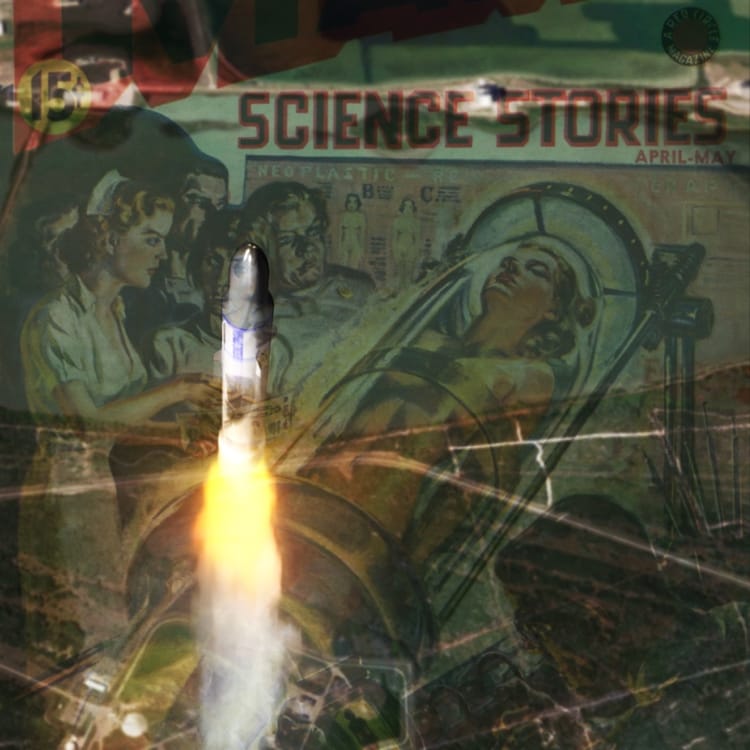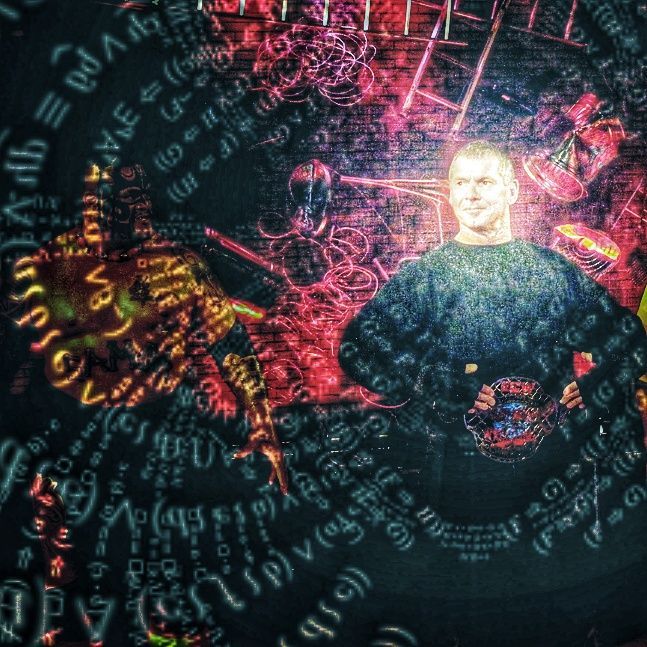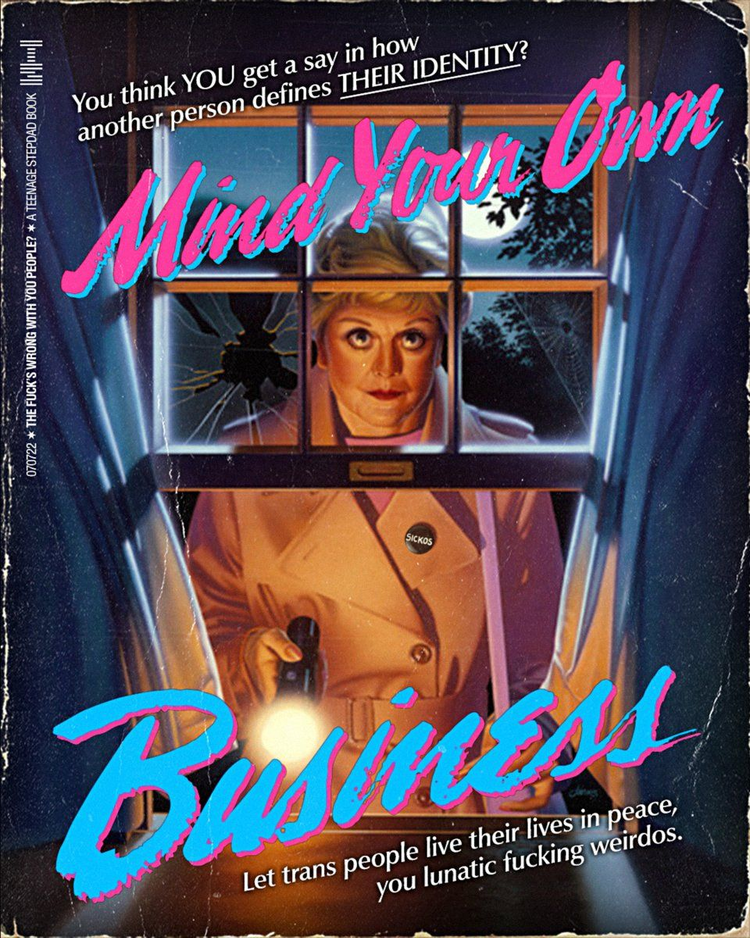Some Things We Must Let Die

Here they come, rotting, knocking on the glass window of your laptop screen. Trailers for dead-eyed franchises. Corporate revenants shuffling along to slow and portentous music.
There's Space Jam: A New Legacy, with its horde of IP characters jerking in parodies of creative life. There's Ghostbusters: Afterlife, croaking out iconographies through rotting vocal chords.
They are the unquiet dead, raised unnaturally, shambling ever onward. They're hungry. They want your money, sure. But more than that, they want your brains…
Welcome to Heat Death , where decay is—unfortunately—an endangered form of cultural life. The end of June finds Asher finishing up a Texas Highways dispatch on the cruelly slandered vinegaroon (described in sundry sensationalistic social media posts as "acid shooting land lobsters") and setting off on a two week jaunt to the East Coast, where he'll be embarking on the process of plotting out a novel. More on that soon.
Saul , meanwhile, has a long-gestating essay for you today: a discussion of the ecological processes of culture, the productive tension between utopia and dystopia, the corpus of writer Kim Stanley Robinson, and why—for the good of all mankind—some things really have to be allowed to die.
(Closer, they shamble. Closer, closer. Do you hear that music? By god! Is that…could that be…The Little Mermaid? No! NO!)
It's Heat Death. Stay with us.
*
Saul here. For the last few months, I've been busily reading my way through science fiction writer Kim Stanley Robinson's canon.
Robinson's work tends toward the high concept: "the one where we lick climate change," "the one where the Black Death wipesout Europe," "the one where New York keeps on busily New Yorking despite being underwater." But his stories display a deft, careful attention to social and economic developments, which he sees as the outgrowth of material conditions, rather than the other way around.
That led me, in June, to the Mars Trilogy, a utopian, magisterial series about the human settlement and terraforming of the planet. It stands — simultaneously — as a fascinating time capsule of the world and its possibilities as seen from the 1990s.
Science fiction, Robinson told podcast_The Antifada , is as much, or more, a mirror of the time that wrote it as it is about the future. It's a casting of an era's hopes and fears — which makes it as much a tool of history as of prognostication. That's one reason why we don't get many of the post-nuclear books that gave me nightmares when I was a kid — and we do get so many dystopias of other sorts. (Like, you know, those damn zombies.)
The Mars trilogy, then, is as much about the world as it seemed at the point that our current order began to emerge — the end of the Cold War — as it is about Mars itself, which makes it feel curiously timeless. Having published them too early for either the War on Terror or the Cold War revanchism of the past two decades — both of which, I suspect, will seem in the long run to be sideshows — Robinson is able to pull out the meta-threads we now live with.
There's the emergence of the transnational order, like a chestburster exploding from the body of the nation-states; the slow grind of ecological collapse; and the rise of new, more inclusive forms of government and economics in reaction to those previous two trends. ("I've been waiting my whole life for the Democratic Socialists of America," Robinson told another podcast, Pod Damn America.)
Several elements of the book do feel dated, of course: as anything projected down a tangent line from 1992 would. There's no EU, for example, but a European Common Market — because the EU had not yet been formally created.
Or: In Red Mars, the first of the trilogy (followed, as terraforming progresses, by Green Mars and Blue Mars), the first settlement is launched in 2024. Which might have seemed plausible in the 1990s, back when the U.S. still had space shuttles.
But these are trivialities. What feels particularly dated, in this jaded age, is the form Robinson chooses to write in: utopia, a venerable genre that tries to sketch out the conceptual terrain of an imagined ideal society. Not a perfect society, of course — Robinson Mars still has murder, terrorism, war, general unhappiness — but a society in the self-conscious process of becoming something better.
It's a common Robinson trope. As the Widow Kung, one of his reincarnated characters proclaims in 2002's The Years of Rice and Salt:
"My feeling is that until the number of whole lives is greater than the number of shattered lives, we remain stuck in some kind of prehistory, unworthy of humanity's great spirit."
"History as a story worth telling," she says, "will only begin when the whole lives outnumber the wasted ones." Until then, "we are still only some kind of gibbering monkey, and humanity, as we usually like to think of it, does not yet exist," remaining still the celestial waiting room between reincarnations that the Tibetan Buddhists call the bardo, "waiting to be born."
This process, Robinson argues across his books, is the process of building utopia; it is the dialectic opposite to the modern fascination with dystopia — the two of them mix together like the hydrogen and oxygen in one of Bezos' spaceships, propelling us on. It's in the Mars books where those ideas reach their fullest fruition: in Mars, Robinson sees a clean slate against which humans can work out a new civilization against a new material reality.
DEATH IS THE SUBSTRATE OF CREATIVE LIFE
"At first it was nearly invisible, and very slow," Robinson writes in Red Mars. His protagonists are making an early attempt to introduce bacteria and lichen to dead red ground, and it seems like rough going:
With a cold snap or a solar storm there would be massive die-offs, whole species extinct in a night. But the remains of the dead fed other creatures; conditions were thus easier for them, and the process picked up momentum.
The new organisms … quickly reproduced, sometimes mutated, always died, and the new life fed on the compost of their ancestors, and reproduced again.
Lived and died; and the soil and air left behind were different than they were before these millions of brief generations."
This is more than an evocative image. Like Red Mars generally, it sketches out the critical importance of death and decay to any sort of growth, life, or progress — cultural, biological, civilizational. Call it a kind of productive heat death: a metaphor for the way societies and nature tear at, tangle and build on each other, tracing tracks across each other's faces, surging ever onwards despite being perpetually knocked back down.
"That is one of the definitions of life," Robinson writes: "organism and environment change together in a reciprocal arrangement, as they are two manifestations of an ecology, two parts of a whole."
And in cultural terms, that is syncretism — the fusion or gene-swapping of cultures — which leads to a new synthesis. Distinct traditions swapping traits, you might say. Or what happens as novelty fights and fucks tradition.
I've been thinking a lot about this idea, and the idea of that progression of birth/death/birth/death — not a cycle but a spiral — in the context of an essay Asher sent me ages ago, from another genre that flirts with the tension between utopia and dystopia: superhero comics.
In that essay, popular comics writer James Tynion (Batman, Justice League Dark) tries to grapple with what we here like to call the Heat Death: why does all culture feel so damn self-referential? Why is it so hard to find something that feels fresh?
Cultural work, Tynion argues, proceeds along a particular generational schema, in a fairly consistent turnover that is quite analogous to Robinson's process of bacterial birth and death. He illustrates using "geek media," but I'd argue it can apply just as well to almost anything else.
A GENERATIONAL THEORY OF GEEK CULTURE
The first generation is the " original stuff": raw, pulpy, unselfconscious, a bit (or a lot) trashy, produced by "blue collar" creators paid even worse than creators usually are, who, Tynion writes, "mash together story tropes into new and interesting configurations for the novelty of it."
This stuff isn't very good — that, as we'll see, comes later — and isn't even supposed to be good. It's supposed to entertain children and bored adults (i.e. sell copies). And because of that, it gets to develop free from the scrutiny of cultural critics and gatekeepers, quietly raising a new generation in new ways of thinking about a medium.
In this generation, you have early noir detective stories or bodice-ripper romance novels or — nearer to our hearts — the Flash Gordon-type adventure serials or pulp scientific romances like John Carter of Mars. Probably the original series of Star Trek and those first Superman comics go in this pile too.
Second comes what Tynion calls "the good stuff: the efflorescent product of adults who have grown up with that early pulp colonizing their subconcious. Not that the previous stuff wasn't ever "good," incidentally; but there was no creative or cultural imperative for it to be respectable. (Maybe "classic" is a better word, though that tends to often just mean, with apologies to Chris Rock, what you consumed when you first started getting laid.)
In this stage, the adults who grew up alongside Flash Gordon, or Star Trek, or Raymond Chandler, are in positions of power at banks and production houses, and the kids who grew up consuming it — people like George Lucas or Steven Spielberg — are old enough to try to do it right. So they make new works that take the potential latent in the pulp generation and shine it up, creating, oh: Star Wars. Or The Godfather. Or Star Trek: The Next Generation.
And the slow churn of time keeps on going: Lucas' and Coppola's peers age into key decision-making positions at banks and production houses, and a new generation of creators grows up on Star Wars and its narrative peers.
Which brings us to the third generation, which is "the important stuff ," as in "self-consciously important." This is an elevation of "already elevated material for an audience that already deeply cares about the second generation content." Which means, Tynion writes, that things get more niche, deconstructing core ideas and basing stories on "deep dives on strange corners of concepts that only work if you understand the second generation material it's rooted in."
You get, in other words, "more sophisticated, adult stories, based on a love of the second generation." So you have: the (largely print) Star Wars expanded universe and — arguably — the first prequel trilogy, with their meditations on war, fate, politics, love, and tragedy, written around the same time that Robinson was working out Mars.
Or Star Trek: Deep Space 9 — (though Tynion would argue it's something more like GalaxyQuest). Or The Sopranos and The Wire, which lovingly deconstruct and interrogate the gangster movie and cop show. This famous riff from 1994's Clerks, about why the destruction of the Death Star in Star Wars: The Return of the Jedi was a war crime — that's classic Third Generation, which is "the apex of geek culture," Tynion writes, when
these stories have reached a self-referential level that make them a little inaccessible to casual fans, unless they're willing to do their homework, but not so inaccessible that that homework feels daunting to your average geek.
And here's where things get interesting. Because that, Tynion argues, is about as far as things go in the wild: usually, then, cultural forms tend to collapse. Wither. Get digested and reborn as something else. Remember Robinson's bacteria? "Sometimes mutate, always die, and the new life fed on the compost of their ancestors, and reproduced again."
And that's why Star Wars and Superman have entered the public domain, dying a dignified death to be reproduced, generations hence, in the pulp of a future age, so that the cycle might begin again.
THE RISE OF ZOMBIE CULTURE
Kidding! Of course that didn't happen, and won't anytime soon. Because there are two more generations, Tynion argues, which are not per se natural.
Stories, he writes, "typically enter their fourth and fifth generation forms when there is a corporate desire to keep a piece of content alive, rather than let it rest and become the raw fodder for second generation content." Such a desire is the byproduct of the world of late-stage capitalism, a world in which media — to use an odious term that has somehow slipped into common use — is dominated by "properties" owned by the great feudal-corporate structures like Disney and Warner Brothers.
Or: When Star Wars is a cash cow, and you have a public who will happily take more Star Wars … Well, you really can't let Star Wars die a natural death, can you?
So in comes the fourth generation: kids who grew up on the Important stuff — who want to be creators, but are now competing against the old masters,which are still under copyright, and still for sale. And the producers and money-holders, who grew up alongside the third-generation and either loved or hated it — doesn't much matter — end up greenlighting what Tynion calls "the regressive stuff." The work that either tries to replicate what the third generation did ("with diminishing returns") or reacts against it.
In the case of Star Wars, you can see both approaches in the recent sequel trilogy. In the first, there's J.J. Abram's Episode VII: The Force Awakens which tries to get us back to the classics by doing a nearly beat-for-beat rehash of the first ever Star Wars.
Then, you have the standalone Rogue One and Rian Johnson's Episode VIII: The Last Jedi, which tries the opposite tack: a penetrating, loving subversion of all that makes Star Wars tick by exposing it to a merciless critical gaze.
Asher and I thought that those latter takes were brilliant, for reasons we'll delve into in the future — but crucially, many fans did not, and clamored for a return to the comforting Star Wars of their youth. And lo, Disney heard, and tacked back to classic with (again) J.J. Abrams, avatar and patron saint of Fourth Generation media, and he gave us the (execrable, lucrative) Episode IX: Rise of Skywalker, which frantically threw signifiers of Old Star Wars—familiar names, familiar ships, empty iconography—at the screen.
A film made to sooth old and bitching fans, in other words, which successfully alienated pretty much everyone else.
To be clear, though, Tynion argues: neither approach really works. In part, that's due to competition from second and third generation stuff still on the shelves. But it's also because —by now — the stories are pumped so full of formaldehyde and life-extending drugs, so characterized by in-jokes and old grievances that it's hard for new readers to work up much of an interest.
But for market reasons, the owners of those stories still cannot allow them to die, which is to say: they are willing to keep paying for new ones.
And so, finally: the fifth generation, which Tynion calls "the convoluted generation," because by now it's the thin tip of a pyramid that the rest of the world can't be fucked to care about.
The fifth generation is a small island community with bizarre mores and old grievances, which makes its internecine arguments particularly ugly. The residents of that island are the managers who grew up alongside fourth-gen creators, and the new creators who grew up watching or reading their media. Both busily set themselves to "correcting" the decisions
made by the previous generation of managers and creators, based on their individual grievances with how the fourth generation picked up the torch from the third generation (or failed to).
This, Tynion writes,
leads to a cacophonous field of work, an echo-chamber of nostalgia and anti-nostalgia, where only the stories that embrace the lunacy and opportunities of that cacophony break through.
Lunacy and opportunities of the cacophony: well, that's comix, folks. But — and this is why I've been so fascinated by this descriptive theory — it's also everything else.
THE CULTURE GRINDS DOWN
In 1963 the American anthropologist Clifford Geertz published a book on agriculture in Indonesia under Dutch colonization. In a situation where the colonial overlords demanded ever more taxes, and a growing population demanded ever more food, agriculture became "involuted" — peasants poured ever more working hours of ever more people into the fields, without ever quite getting ahead.
For millennials in 21st Century China, where the concept has taken on a searing relevance for students funneled from toddlerhood through an endless olympiad of cram sessions, life-determining tests, and grind-happy jobs, involution is translated as neijuan, which as The New Yorker writes
is made up of the characters for "inside" and "rolling," suggests a process that curls inward, ensnaring its participants within what the anthropologist Xiang Biao has described as an "endless cycle of self-flagellation"
I think "involution" is a better term for the end point of Tynion's cultural progression than convolution: after a certain point, you can grind no more. The spark is gone, and only the exhortation to don't just stand there, do something keeps the machine running, over and over.
It is easy, and even rational — as the young Chinese in the New Yorker article gripe — to react to an impossible situation by scrabbling ever harder at the walls. When the landlords demand ever more taxes and there are too many people on the land for your system of cultivation (as in 20th Century Java), or when the jobs are few and the path to security narrow and a thundering mass pounds on behind and around you (in 21st Century China, or America) — then there appears to be nothing to do but grind on.
It's just that it doesn't work. Or doesn't work for long. Eventually, if a new way isn't found, the system explodes: people's reserves, or the land's, or those stories and music that are the lifeblood of culture, become too thin to work as they once could. And so they collapse.
And when they do, that collapse becomes all the worse because there is no resilience, no margin for error, no top soil or seed bed. Because there has never been enough time for the compost or partial deaths that are necessary to give the land, or the populace, or the culture, a little bit of rest.
BEWARE OF DYSTOPIAS AND QUOTERS OF MAO
Which brings us back, finally, to Robinson, who in his interview on Pod Damn America points at a similar set of ultimately unsustainable and involuted social circumstances in both the precariat — those (like so many of us here) who are one missed paycheck or failed gig or unexpected expense or illness or injury away from some form of collapse — and in the broader constellation of cultures we call the left.
In the absence of a clear way forward we tend to ruminate like depressives on dystopia — a form of denial that things will get better — or similarly morbid fantasies of violent rebellion, of "burning it down" or "attacking the barricades" or other similar nonsense that a moment's thought should convince us that we do not want to do.
You see a similar involution in the tendency, so very evident in the endless 2020 election and soon to be restarted, for self-described leftists to tear at each other over what can only be, from where we now stand, obscure points of quasi-theological doctrine. This is, I think, what Tynion might describe as the tragedy of fifth-generation culture: that it is zombified, kept alive for fear of collapse, obsessed with exotic discourse, and of little interest to people outside of the little communities and debating circles it services.
And yet all people, in their hearts — I must believe, assuming this metaphor holds — still crave a good story. It's just that to get there, things have to collapse again: back down to pulp and raw unsophisticated simplicity, so they can be rebuilt again into something good. Something not kept alive by the legacy needs of an increasingly irrelevant corporatized culture — but fresh, vital, simple, emerging organically from the needs of the moment.
Here's a practical example of the difference, from the Pod Damn America interview with Robinson. When Chairman Mao said that "power flows from the barrel of a gun," he notes, that observation arose in the context of a China that was just a hair away from what we would consider post-apocalyptic: a country torn between warring gangster fiefdoms that were often only states — in the sense of some basic social compact — in the loosest and most predatory sense, and were beset by a ruthless, racist, invading army from Imperial Japan.
In that context, Robinson said, Mao was dead right: you could not have any kind of a state, or any meaningful power, without security. Even if you had Gandhi-like charisma, wedded to a great social movement and a powerful cause — without military superiority, that was likely not going to be enough. To build the current state (which, to be clear, I still would not want to live in) the Red Army had to conquer and hold territory, and gradually expand it.
But in this context — 21st Century, reasonably stable America — for leftists to spout that crap is basically cosplay of the most irresponsible sort. Because in America, in most cases and all that you'd want to be involved in, power does not flow from the barrel of a gun — it flows from money and influence of all other sorts, and the role of firearms and state security (while often oppressive) is largely to function as the bouncers in the forum where the important things happen. If we end up in the world where power once again flows from the gun, we have really fucked up.
In this context, Robinson argues, it's similarly irresponsible for liberals and socialists and Democratic socialists and social Democrats and the weird spheres of tanky Commies and climate- or good-governance-focused conservatives to fall out over what are, from where we currently stand, small differences.
Instead, Robinson proposes a generational model of progressive success: a longue duree project like the kind he outlines in Mars. Unlike Tynion's descriptive model, it's prescriptive, and each step builds on the foundations of what came before.
Here's what it looks like: We start with resisting austerity — this is the step we were at in 2008 - 2020 — followed by pushing for a confident version of left-liberalism and the beginnings of a decent society.
That, in turn, could be followed by something like Northern European social democracy, where capital is tamed and the state begins to treat the necessities of life — and even its pleasures — as something more like a public utility. Which is followed by democratic socialism, in which the capitalist oligarchy withers in an ecosystem of cooperatively-owned workplaces.
You'll notice that the further we go along this pathway, of course, the more vague and hand-wavy it gets — because now we're casting into the deep future, into some unknowable material reality, one that will have to solve its own problems and come up with its own solutions. It may take centuries to get to democratic socialism, for all that the DSA exists now. What will those people call a true collective post-scarcity society?
IT'S THE FUTURE'S JOB TO WORK OUT WHAT THE FUTURE MEANS
Well, Robinson says, we might call it communism, or (my preferred model, having come up in the Austin co-ops) we might call it anarchism. But — and I think this is his best point — what we call it doesn't matter. If we do our work in this generation, and raise our children and grandchildren to do theirs, then words like "socialism" or "communism" or "anarchism," — relics of the early days of industrial capitalism — will be obsolete, or have been repurposed by a new first or second generation, who will use them to tag a new set of solutions for a new set of material circumstances.
Provided, anyway, such terms aren't kept alive or idolized unnecessarily. It's worth noting that even "left" and "right" are terms that probably are no longer much help in describing the modern political scene, because those terms date back to 1789, in the early days of the French Revolution — they referred to which side of the (still un-beheaded) King Louis XVI the various different factions of France chose to sit on.
As the right-wing Baron de Gauville recalled:
We began to recognize each other: those who were loyal to religion and the king took up positions to the right of the chair so as to avoid the shouts, oaths, and indecencies that enjoyed free rein in the opposing camp
of anti-monarchists sitting on the left.
The moment de Gauville describes was like Tynion's first generation culture: the organic emergence of something in response to natural circumstances. Nearly ten generations later, we find ourselves in a different world, and it is worth asking if which side of the French king one chooses to sit on remains the most useful metaphor we can think of to describe our politics.
At any rate, the solution Robinson argues for is simple as it is difficult: solidarity forever. To look at the people we half-agree with and say, "Your solution may take the field in 100 years; yours in 50; yours now." Not a question of either-or, but of when, how, and how much. The sphere, in other words, of politics, as opposed to theology or ideology.
When Robinson said that dystopia was part of a dialectic, what he meant was that it is in constant conversation with utopia about the parameters of what's possible. It is something approaching a sin to fall prey to denial in either sphere. To fail to acknowledge that things could go very badly, to not look square at the reality of tipping points — this is irresponsible.
But it's just as stupid to fail to see the possibility of utopia — that we will, with time, bring about a world that is ever more just, in which (as the Widow Kung said in The Years of Rice and Salt) history may finally begin. And to use the tension between those extremes as fuel, while we throw away — or at least hold more lightly — models of the past, and to build again, rough and fresh and new.
That's Heat Death. Thanks for reading. If you've enjoyed this essay, please subscribe, and be sure to send all feedback to brothers@heatdeath.xyz.





Member discussion